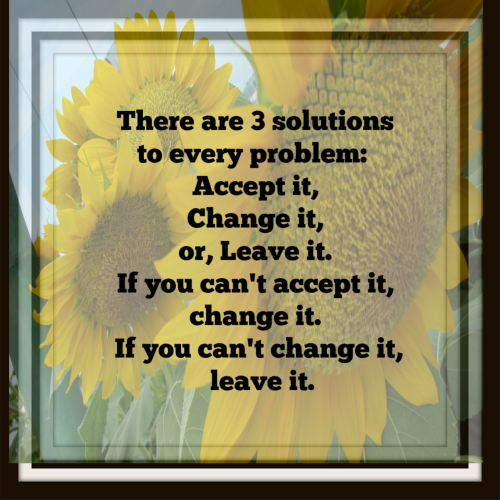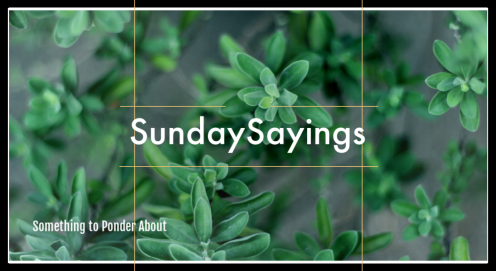
Weekly Saying
Man kan sola sig en hel dag i en varm tanke
“One can lie in the sun a whole day with just warm thoughts“
Swedish proverb
Thoughts and Meditation

One of the benefits of incorporating a regular meditation practice into your life is in helping to settle the mind.
With the constant expectations and intense stimuli around us in the modern world, thoughts may easily race out of control and threaten to consume us. Or, when all is quiet and we’re alone for too long, our mind and thoughts can worry us and give us no rest.
Relief may be found in relaxing the mind. Recurring or troubling thoughts may elevate our mental state and encourage the release of adrenaline and stress hormones in our bodies. Clearing the mind, or stilling those thoughts, especially the recurrent ones, may give the emotional self attached to those thoughts, a much needed break.

Sometimes it is impossible to ‘clear’ the mind; to just think more positively.
That’s when it may help to step back from one’s thoughts and see them as separate to your own self. Because they are!
You are not your ‘thoughts,’ alone! There is a person and a body in there too.
Looking at your thoughts as if you are an observer, as a silent witness can help quieten a tumultuous mind.
When I felt like the emotions deriving from troubling thoughts, especially negative ones, were consuming my thinking, I found the following analogy helpful, in promoting mental stillness and calm.
Meditation Exercise – Be an observer
Find a quiet place and:
Imagine that you are sitting on a riverbank and that you see a leaf or branch, stick or even a flower, (if that suits you), floating along with the stream’ s current.
That leaf/twig/flower is floating down the stream towards you. You see it approach, floating on that gentle current, and you continue watching it, in your mind. It continues to float by and eventually you see it pass in front of you, the current then taking it further downstream and then finally out of your sight.

Each branch/leaf/petal, is a single one of your thoughts.
Sometimes that floating stick or branch might get stuck on a rock, or the riverbank itself for a while, before the current again catches it and it floats away out of sight.
Each thought is a different leaf or stick that will pass by on its way. You remain calm, staying out of the way, a silent observer on the riverbank but watching this from a distance.
In this way, you see yourself as separate to your thoughts, a silent observer.

Keep your thoughts positive because your thoughts become your words. Keep your words positive because your words become your behavior. Keep your behavior positive because your behavior becomes your habits. Keep your habits positive because your habits become your values. Keep your values positive because your values become your destiny.
-Mahatma Gandhi
The emptying or observing of emotions is like pressing a reset button on all the stress hormones and neurotic needs caused by daily life situations and experiences.
We can all use a Reset button at times!
There are many other methods of meditation that are useful to still the mind. I found mindfulness and bead meditation to be most useful for me.

You have to find the method that suits you best.
Happy Sunday





























